Erik Skitch Matson — March 5, 2017 — 1 Corinthians 13:11-12
What is Lent?
Lent was spoken of in the 2nd Century, but then established as Lent with the typical Ash Wednesday in the 6th century under Gregory the Great.
Why? Self examination and Penitence in preparation for EASTER. It is a time for Repentance and Renewal: Giving up things, originally food until sundown (vegetarian), but now it is a more robust “Fasting”. It is also a time for self-reflection, prayer and reading of scripture
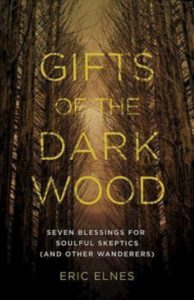 Gifts of the Darkwood
Gifts of the Darkwood
Our sermon series is based on the book Gifts of the Dark Wood by Eric Elnes, a wonderful Lenten book for reflection. In this series we can see our time in the Dark Wood as a gift.
Another book worth reading, “Dante’s Inferno” is about finding your place in the world at the very point you feel farthest from it. Here the dark wood includes struggle. It is “where you meet God.”
As we explore the Gift of UNCERTAINTY, we realise that this is not a “Typical” gift. We like control, certainty, and understanding, now. So where can we go with uncertainty.?
In 1 Corinthians 13:11-12, we see a flurry of pride, and then a swift shift to vulnerability. I had always known Paul to be the confident leader, with the perfect pedigree and best teachers backing him — he’d fit into Princeton pretty well. But this is not your typical Paul. This Paul is more vulnerable about his own limitations and his own uncertainty. Paul admits that he sees dimly. What would it take for us to have the courage to admit that our own spiritual vision is dim?
Take a look at the people around you: what would it take for us to dig into the Lenten season, and live in the Dark Wood of our lives together? What would it take for us to have faith, now, in these lives we live.
What would it take for us to be the body of Christ—a body where each member is known, loved, and cared for.
What would it take to be vulnerable with one another about our personal pains? Our sins? Our uncertainties?
We know we want it. We know we need it. But what will it take…?
It will take a Christian Community that has ONE body, and ONE blood. A Christian Community where we—the broken, the maimed, the sinners, and the saints—are welcomed and accepted.
Where at times we are supported, and also where we support others. Where we are known not for our rigid certainty, but our radical faith in the midst of the fluidity of real, human life.
The Christians we have looked up to for centuries… Can we follow their example? Can we  create a community, here, in this place, where the hope of seeing Christ face to face leads us to accept our own spiritual vision as dim?
create a community, here, in this place, where the hope of seeing Christ face to face leads us to accept our own spiritual vision as dim?
Where does this start? It starts with the Release of Shame. One Body, broken for you; One Blood, shed for you. The Free Gift of Grace transforms us to be the Christian Community that calls itself “The Body of Christ.”
Let us come…
As we take communion, we wonder if, by leaning on each other, our collective vision can be more powerful. Let us therefore go together, as one broken body, through the Dark Wood of Lent.

 .
. The prophet says that doing such acts of justice and mercy will result in the rapid healing of the people of God. It will result in a renewed and improved relationship with God, in which God’s people communicate with God freely: “Then you shall call, and the Lord will answer; you shall cry, and he will say, Here I am.” God’s people will experience God’s presence.
The prophet says that doing such acts of justice and mercy will result in the rapid healing of the people of God. It will result in a renewed and improved relationship with God, in which God’s people communicate with God freely: “Then you shall call, and the Lord will answer; you shall cry, and he will say, Here I am.” God’s people will experience God’s presence. Give us grace, O Lord, to answer readily the call of our Savior Jesus Christ and proclaim to all people the Good News of his salvation, that no matter who runs the United States, we and the whole world may perceive the glory of his marvelous works; who lives and reigns with you and the Holy Spirit, one God, for ever and ever. Amen. (Book of Common Prayer, Collect for Year A, Third Sunday after Epiphany, modified by author.)
Give us grace, O Lord, to answer readily the call of our Savior Jesus Christ and proclaim to all people the Good News of his salvation, that no matter who runs the United States, we and the whole world may perceive the glory of his marvelous works; who lives and reigns with you and the Holy Spirit, one God, for ever and ever. Amen. (Book of Common Prayer, Collect for Year A, Third Sunday after Epiphany, modified by author.)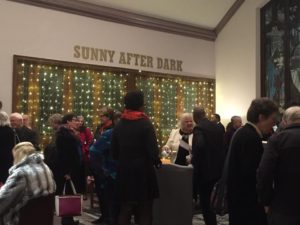 Well that sounds nice, doesn’t it? We’ve never had a disagreement in this church, have we? I remember at one of the parishes I formerly served in England, there was a weekend morning coffee gathering open to the public. It wasn’t quite as elaborate or hip as the
Well that sounds nice, doesn’t it? We’ve never had a disagreement in this church, have we? I remember at one of the parishes I formerly served in England, there was a weekend morning coffee gathering open to the public. It wasn’t quite as elaborate or hip as the  Now I appeal to you, brothers and sisters, by the name of our Lord Jesus Christ, that all of you be in agreement and that there be no divisions among you, but that you be united in the same mind and the same purpose.
Now I appeal to you, brothers and sisters, by the name of our Lord Jesus Christ, that all of you be in agreement and that there be no divisions among you, but that you be united in the same mind and the same purpose. Maybe some of you were there too. In New York, where I live, there were reportedly 400,000 women, men, and children
Maybe some of you were there too. In New York, where I live, there were reportedly 400,000 women, men, and children 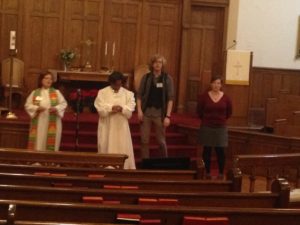 “God imagines…” signals a divine reality – a reality that exists already as far as God is concerned, although not quite yet as far as humans are concerned. “God imagines” is an invitation to enter a divine space called the Kingdom or the Reign of God, a place that holds the substance of the things we humans hope for, and dream of.
“God imagines…” signals a divine reality – a reality that exists already as far as God is concerned, although not quite yet as far as humans are concerned. “God imagines” is an invitation to enter a divine space called the Kingdom or the Reign of God, a place that holds the substance of the things we humans hope for, and dream of.  In
In  be more in number than the stars of the heaven or the sand of the sea. I think we’re looking at them here in Revelation. This is what New Testament scholar
be more in number than the stars of the heaven or the sand of the sea. I think we’re looking at them here in Revelation. This is what New Testament scholar 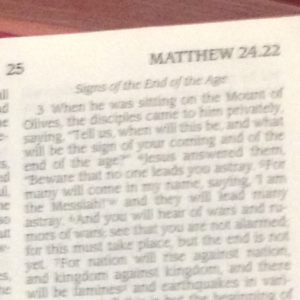 Is this passage anyone’s favorite passage of scripture? Heavy reading isn’t it? It takes me back to time spent with my conservative Baptist grandmother who often lamented that we were moving into the end times, the signs were all around us.
Is this passage anyone’s favorite passage of scripture? Heavy reading isn’t it? It takes me back to time spent with my conservative Baptist grandmother who often lamented that we were moving into the end times, the signs were all around us. The
The 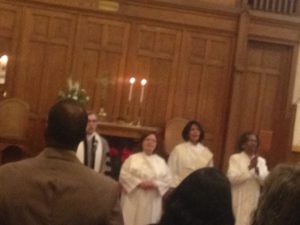 Lord, make me an instrument of thy peace;
Lord, make me an instrument of thy peace; The youth program at PUMC includes multiple “Youth Staff” volunteers who dedicate their time to mentoring our teens. Most of these “Staff,” however, are new to PUMC. So, for the next few months we will showcase a short interview with each youth staff, allowing us to know a bit more about them and their passion for our youth. Hopefully this short piece will give you the courage to talk with them the next time you see them!
The youth program at PUMC includes multiple “Youth Staff” volunteers who dedicate their time to mentoring our teens. Most of these “Staff,” however, are new to PUMC. So, for the next few months we will showcase a short interview with each youth staff, allowing us to know a bit more about them and their passion for our youth. Hopefully this short piece will give you the courage to talk with them the next time you see them!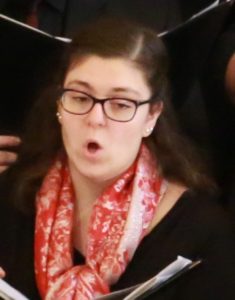 Marisa Curcio,
Marisa Curcio,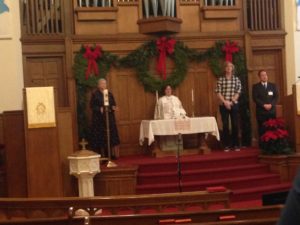 On New Year’s Day, Rev. Jana preached on the difficult passage from Matthew. Here are some notes from her message:
On New Year’s Day, Rev. Jana preached on the difficult passage from Matthew. Here are some notes from her message: 







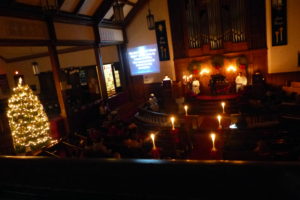



 So I’m recommending that we keep our eyes and ears open for the ways in which God’s love comes to us during this season? I have to say that just like the
So I’m recommending that we keep our eyes and ears open for the ways in which God’s love comes to us during this season? I have to say that just like the